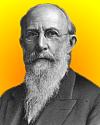
On 29 May 1826, Ebenezer Butterick was born, the American manufacturer who is regarded as the inventor of graded paper patterns for clothing (1859). Perhaps you never saw your mother pinning a paper pattern onto a length of cloth, but your grandmother probably did!
Click this link to read a biography of Ebenezer Butterick (published in 1907), which describes how Butterick patterns became iconic in the era when mothers made clothing for their family.

On 29 May 1829, Humphry Davy died, the outstanding English chemist who discovered several chemical elements and compounds. His work epitomized the scientific method. Davy also invented the miner’s safety lamp. But Davy should be remembered as more than the Man With The Lamp! Today's book pick is: Humphry Davy, by Raymond Lamont-Brown, who shows Davy was a man with wide-ranging interests at the centre of London life, and also a poet of some ability. Most of all, reading this book enables you to know Davy as a substantial scientist, instead of a vague shadow in one's mind.
To investigate their physiological properties, Humphry Davy inhaled gases (1800), such as nitrous oxide (laughing gas) and a nearly fatal inhalation of water gas, (a mixture of hydrogen and carbon monoxide).
Davy discovered two alkali metals, sodium and potassium, using electric current in the separation for the first time (1807). In the next year, he also used electrolysis to isolate several alkaline earth metals (1808).
On a visit to Penzance, your Webmaster saw the chemist's shop (pharmacy) where Davy worked as a young man. Then at a nearby bookseller Webmaster was able to buy this book in Davy's hometown (which by happy coincidence, had just been published).
Davy was such an important scientist in his era that this biography is one that deserves your attention
It is available from Amazon, typically about Used from $2.98. (As of earlier time of writing - subject to change.)
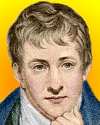 | By science calmed, over the peaceful soul, Bright with eternal Wisdom's lucid ray, Peace, meek of eye, extends her soft control, And drives the puny Passions far away. |
 | Every discovery opens a new field for investigation of facts, shows us the imperfection of our theories. It has justly been said, that the greater the circle of light, the greater the boundary of darkness by which it is surrounded. |
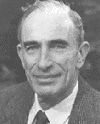 | Overdrafts on aquifers are one reason some of our geologist colleagues are convinced that water shortages will bring the human population explosion to a halt. There are substitutes for oil; there is no substitute for fresh water. |
| Before you look at today's web page, see if you can answer some of these questions about the events that happened on this day. Some of the names are very familiar. Others will likely stump you. Tickle your curiosity with these questions, then check your answers on today's web page. | |
| Births | |
 | A Chinese-born American physicist was born on 29 May 1912. She provided the first experimental proof that parity is not conserved in weak subatomic interactions of nuclear beta decay. This proved the theory previously proposed by Tsung Dao Lee and Chen Ning Yang in 1956. Observing the beta particles given off by cobalt-60, she found that there is a preferred direction of emission. Therefore, for this weak interaction, parity was not conserved. Identical nuclear particles do not always act alike! Can you name this physicist? |
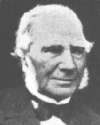 | Antoine A.B. Bussy, born on 29 May 1794, was a French chemist who first prepared a certain element in good-sized amounts. Humphry Davy had discovered it in 1808, but could only separate a very tiny sample. In 1831, Bussy described an improved method to isolate this element. He heated the chloride of this element with potassium in a glass tube. When cooled, he washed out the potassium chloride, leaving small, shiny metallic globules. This ductile silver-white alkaline earth metal is the eighth most abundant element in the Earth’s crust. What was this element? |
| Deaths | |
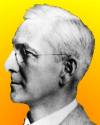 | Arnold Gesell (1880-1961) was a U.S. psychologist and pediatrician who studied the physical and mental development of normal infants and children. His books gave norms for behavior at successive stages of development. These were widely read by parents. Gesell was one of the first to attempt a quantitative study of child development, establishing his own methods of observation and measurement. Gesell's initial work focused on developmentally disabled children, but he believed that it was necessary to understand normal infant and child development in order to understand non-normality. He also studied Down's syndrome, cretinism, and cerebral palsy. From 1926, he pioneered a new method to make a record of the studies he made. What observation method did he pioneer? |
 | Humphry Davy (1778-1829), an outstanding English chemist, discovered several chemical elements and compounds. He invented the miner's safety lamp. His work epitomized the scientific method. When he was appointmented to the Pneumatic Institution, he studied the physiological effects of new gases. Davy discovered several elements, including alkali metals, potassium and sodium (1807). He discovered boron at the same time as Gay-Lussac. He identified a certain gas as an actual element, and not a compound, as other workers had previously regarded it. What gas did Davy identify as an element, which previous workers had confused as a compound? |
| Events | |
 | In 1919, a solar eclipse permitted observation of the bending of starlight passing through the sun’s gravitational field, as previously predicted by theory. Separate expeditions of the Royal Astronomical Society travelled to both Brazil and Africa. This confirmation of the theory was a dramatic landmark scientific event. What was the theory, and who proposed it? |
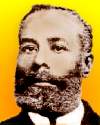 | In 1888, another of his numerous lubricating devices was patented by black American inventor, E.J. McCoy (U.S. No. 383,746). His lubricators were so effective and reliable that customers looked for his name on them, which it is said gave rise to a new expression. What is this expression? |
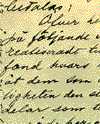 | In 1898, the heirs of a European industrialist signed a “reconciliation agreement” so that lawyers and accountants could execute his will. The will’s major bequest was to create new scientific awards, after the heirs’ disputes had been settled. What is the first name of the man who left this will? |
Fast answers for the previous newsletter for May 28: Prions are simple proteins, much smaller than viruses, and are unique since they lack a genome, whereas all other known infectious agents contain genetic material. • Joseph Ignace Guillotin • he looked for unknown lines in the spectra from samples, heated in an electric spark, revealed using a spectroscope • cancer • John Muir • the decade including the year 1897.
 If you enjoy this newsletter, the website, or wish to offer encouragement or ideas, please send feedback by using your mail reader Reply button.
If you enjoy this newsletter, the website, or wish to offer encouragement or ideas, please send feedback by using your mail reader Reply button. Your click on a Facebook, StumbleUpon, or other social button on the site webpages is also a welcome sign of appreciation. Thank you for using them.
© This newsletter is copyright 2020 by todayinsci.com. Please respect the Webmaster's wishes and do not put copies online of the Newsletter — or any Today in Science History webpage. (If you already have done so, please remove them. Thank you.) Offline use in education is encouraged such as a printout on a bulletin board, or projected for classroom viewing. Online, descriptive links to our pages are welcomed, as these will provide a reader with the most recent revisions, additions and/or corrections of a webpage. For any other copyright questions, please contact the Webmaster by using your mail reader Reply button.
--
If you do not want to receive any more newsletters, Unsubscribe
To update your preferences and to unsubscribe visit this link
Executive Real Estate Business Class
-
"It was like a man with wings. It wasn't like anything you'd see on TV or in a monster movie." ...
About the publisher
Search This Blog
Blog Archive
-
▼
2021
(585)
-
▼
May
(62)
- Tonight: Back-to-Back Premieres
- On This Day for May 31 - Adolf Eichmann hanged, Cl...
- Newsletter for Monday 31 May.
- On This Day for May 30 - Joan of Arc burned at the...
- TONIGHT at 8/7c: The Tulsa Race Massacre Revealed
- Newsletter for Sunday 30 May.
- Bundle Up For The Summer!
- On This Day for May 29 - Mount Everest summit reac...
- Newsletter for Saturday 29 May.
- On This Day for May 28 - Amnesty International fou...
- Newsletter for Friday 28 May.
- On This Day for May 27 - Founding of St. Petersbur...
- Newsletter for Thursday 27 May.
- On This Day for May 26 - Martin Luther declared a ...
- Newsletter for Wednesday 26 May.
- On This Day for May 25 - U.S. Constitutional Conve...
- Newsletter for Tuesday 25 May.
- Behind Every Empire There’s a Titan
- On This Day for May 24 - Opening of the Brooklyn B...
- On This Day for May 23 - Tibet annexed by China, C...
- Newsletter for Sunday 23 May.
- The Tulsa Race Massacre, 100 Years Later
- On This Day for May 22 - Roman Emperor Constantine...
- Newsletter for Saturday 22 May.
- On This Day for May 21 - First nonstop solo transa...
- Newsletter for Friday 21 May.
- On This Day for May 20 - U.S. Homestead Act signed...
- Newsletter for Thursday 20 May.
- On This Day for May 19 - Ringling Bros. Circus for...
- Newsletter for Wednesday 19 May.
- Learning This Fun Doesn't Need A Summer Break
- On This Day for May 18 - Eruption of Mount St. Hel...
- Newsletter for Tuesday 18 May.
- On This Day for May 17 - School segregation outlaw...
- Newsletter for Monday 17 May.
- Follow the trail of 400 facts!
- On This Day for May 16 - Warsaw Ghetto Uprising su...
- Newsletter for Sunday 16 May.
- On This Day for May 15 - Edith Cresson appointed F...
- Newsletter for Saturday 15 May.
- On This Day for May 14 - Declaration of Israel's s...
- Newsletter for Friday 14 May.
- On This Day for May 13 - U.S. declaration of war o...
- Newsletter for Thursday 13 May.
- Ridiculous History You Want To Know About!
- On This Day for May 12 - First flight over the Nor...
- Newsletter for Wednesday 12 May.
- On This Day for May 11 - “New Rome” established by...
- Newsletter for Tuesday 11 May.
- On This Day for May 10 - Nelson Mandela inaugurate...
- Newsletter for Monday 10 May.
- On This Day for May 9 - Fourth and final voyage of...
- On This Day for May 7 - Theatre Royal opened, Pyot...
- On This Day for May 5 - Mexican victory in the Bat...
- On This Day for May 4 - Four students shot at Kent...
- On This Day for May 3 - Margaret Thatcher elected ...
- Newsletter for Monday 3 May.
- TONIGHT: The Bin Laden Raid, Revealed
- On This Day for May 2 - Lou Gehrig's 2,130-game st...
- Newsletter for Sunday 2 May.
- On This Day for May 1 - May Day founded, Arthur We...
- Newsletter for Saturday 1 May.
-
▼
May
(62)
-
Blogroll
-
About
HistoryFact










0 comments:
Post a Comment